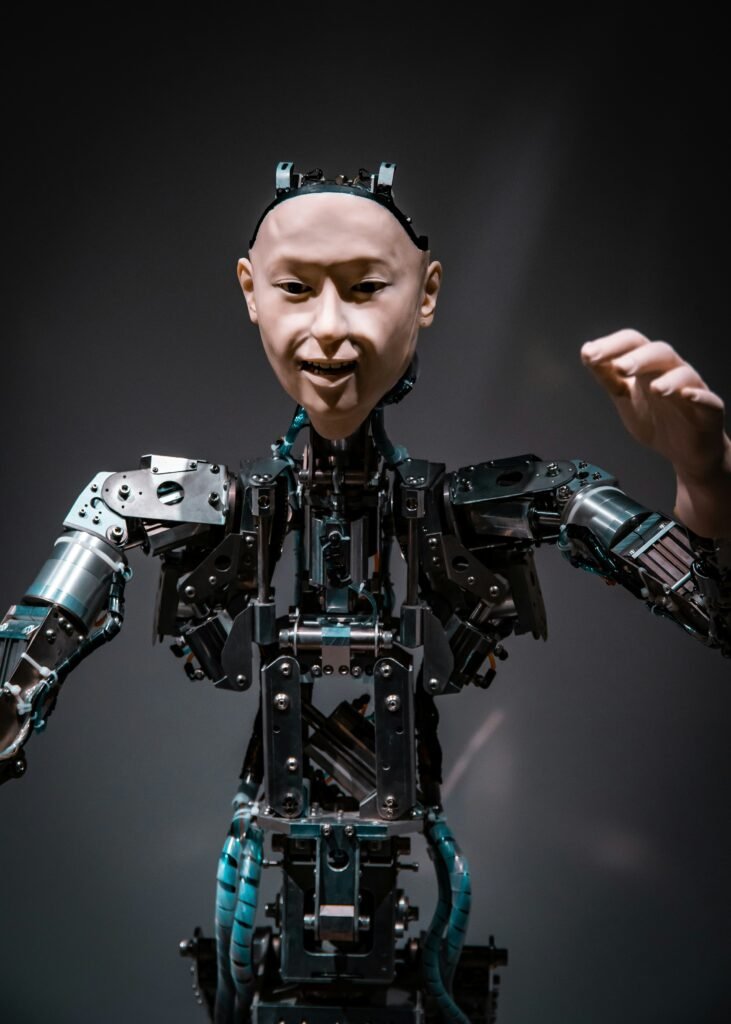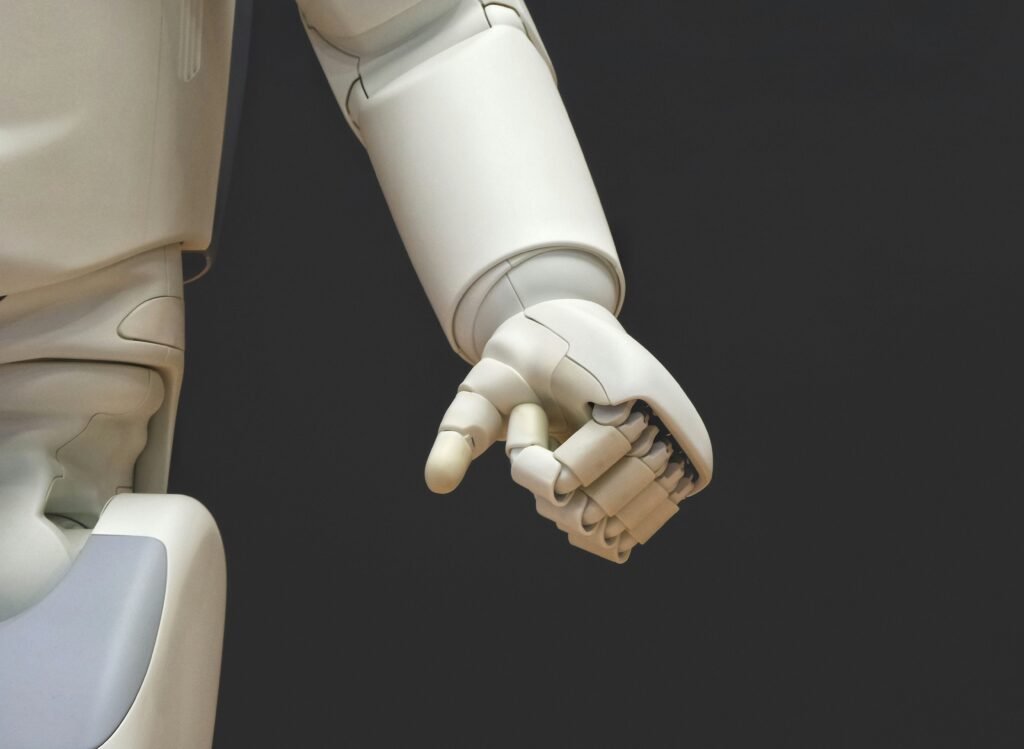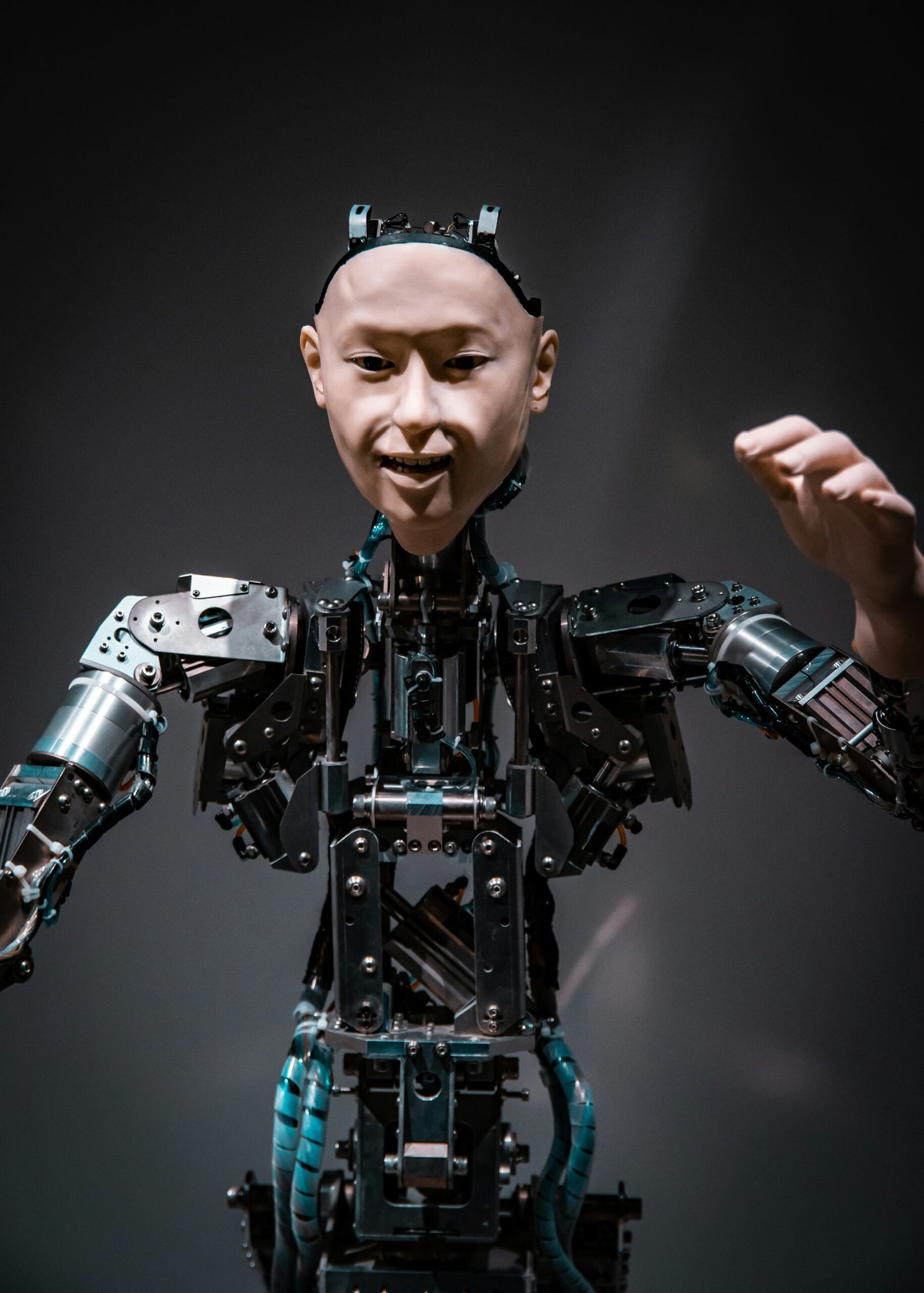Imagine a world where machines can communicate like humans, analyze vast amounts of data, and make decisions based on intelligence and reasoning. Sounds like something out of a sci-fi movie, right? Well, brace yourself because artificial intelligence (AI) is not just a futuristic concept anymore, it’s here and it’s hotter than ever. From autonomous vehicles to virtual assistants, AI is revolutionizing industries and transforming the way we live and work. Join us as we explore the mesmerizing world of AI and discover how it’s reshaping our future. Get ready to be amazed by the extraordinary capabilities of this red-hot technology.
Understanding Artificial Intelligence
Artificial Intelligence (AI) is an ever-growing field that aims to create intelligent machines capable of performing tasks that typically require human intelligence. These machines are designed to perceive their environment, learn from experience, and make decisions or take actions to achieve specific goals. In simpler terms, AI refers to the simulation of human intelligence in machines that are programmed to think and learn like humans.
What is Artificial Intelligence?
Artificial Intelligence encompasses a wide range of technologies and approaches that enable machines to carry out tasks that would otherwise require human intelligence. These tasks include speech recognition, decision-making, problem-solving, language translation, and much more. AI systems can be categorized into two main types: Narrow AI and General AI.
Narrow AI, also known as Weak AI, is designed to perform specific tasks and operate within a predetermined set of boundaries. Examples of narrow AI applications include virtual assistants like Siri and Alexa, image recognition software, and recommendation systems.
On the other hand, General AI, also known as Strong AI, refers to machines that possess human-level intelligence and can perform any intellectual task that a human being can do. While General AI is still a futuristic concept, researchers and scientists continue to explore ways to achieve this level of AI capability.

Key Components of Artificial Intelligence
Artificial Intelligence consists of several key components and techniques that enable machines to exhibit intelligent behavior. These components include:
-
Machine Learning: Machine learning allows machines to learn from experience and improve their performance on a given task without being explicitly programmed. It involves the development of algorithms that can analyze and interpret vast amounts of data to identify patterns and make predictions or decisions.
-
Natural Language Processing (NLP): NLP enables machines to understand and interpret human language. It involves the development of algorithms that can process and analyze text and speech data, allowing machines to extract meaning, respond to questions, and engage in human-like conversations.
-
Computer Vision: Computer vision focuses on giving machines the ability to see and interpret visual data, such as images and videos. It involves the development of algorithms that can detect and recognize objects, understand scenes, and extract meaningful information from visual inputs.
-
Robotics: Robotics combines AI with physical machines to create intelligent robots capable of performing tasks in the physical world. AI-powered robots can navigate their environment, manipulate objects, and interact with humans in a natural and intelligent manner.
Applications of Artificial Intelligence
The potential applications of Artificial Intelligence span across various industries and sectors. Here are a few examples of how AI is being utilized in different fields:
AI in Healthcare
Artificial Intelligence has the potential to revolutionize the healthcare industry. It can help in diagnosing diseases, analyzing medical images, developing personalized treatment plans, and predicting patient outcomes. AI-powered systems can also assist in remote patient monitoring, drug discovery, and patient care management.
AI in Finance
AI is reshaping the finance sector by automating routine tasks, reducing human errors, and improving decision-making. Financial institutions are using AI-powered algorithms for fraud detection, risk assessment, trading, investment management, and customer service. AI chatbots are also being deployed to provide personalized financial advice and assistance.
AI in Manufacturing
In manufacturing, AI is driving improvements in efficiency, productivity, and quality control. AI-powered systems can analyze vast amounts of production data in real-time, optimize production schedules, and predict equipment failures. Robots and cobots (collaborative robots) powered by AI are also being used for tasks like assembly, pick-and-place, and quality inspection.
AI in Transportation
Artificial Intelligence is transforming the transportation industry by enabling autonomous vehicles, optimizing logistics operations, and enhancing traffic management. Self-driving cars, trucks, and drones are being developed to improve road safety, reduce transportation costs, and increase efficiency. AI is also used for route optimization, predictive maintenance, and real-time traffic analysis.
AI in Customer Service
AI-powered chatbots and virtual assistants are being increasingly adopted by businesses to enhance customer service experiences. These AI systems can handle customer queries, provide personalized recommendations, and automate routine tasks. By leveraging natural language processing and machine learning, AI-powered customer service tools can understand and respond to customer needs in real-time.

Machine Learning and Artificial Intelligence
Machine Learning (ML) is a subset of Artificial Intelligence that focuses on enabling machines to learn from data and improve their performance on a specific task. ML algorithms are designed to analyze large datasets, identify patterns, and make predictions or decisions based on the data.
Differentiating Machine Learning and AI
While Machine Learning is a crucial component of AI, it is important to differentiate between the two. AI is a broader concept that encompasses various technologies, including ML. AI is concerned with creating intelligent machines that can simulate human intelligence, while ML is concerned with developing algorithms and statistical models that enable machines to learn from data.
Supervised Learning
Supervised Learning is a type of ML technique where an algorithm is trained on labeled data. The algorithm learns from the labeled examples and makes predictions or decisions based on new, unseen data. In supervised learning, the model is provided with inputs (features) and corresponding outputs (labels) to learn the mapping between them.
Unsupervised Learning
Unsupervised Learning is a type of ML technique where the algorithm learns patterns and relationships from unlabeled data. Unlike supervised learning, there are no provided labels or outputs for the algorithm to learn from. Unsupervised learning algorithms aim to discover hidden structures and clusters within the data without any prior knowledge.
Reinforcement Learning
Reinforcement Learning is a type of ML technique where an agent learns to interact with an environment to maximize a reward signal. The agent explores the environment, takes actions, and receives feedback in the form of rewards or punishments. Through trial and error, the agent learns to take optimal actions that lead to higher rewards.
Ethical Considerations in AI
As AI continues to advance and become more integrated into various aspects of our lives, it is crucial to address the ethical implications and considerations associated with its use. Here are some key ethical considerations in AI:
Data Privacy and Security
AI systems rely heavily on data, and ensuring the privacy and security of that data is vital. Organizations must protect sensitive data from unauthorized access and use appropriate data anonymization techniques. Transparent policies and consent mechanisms should be in place to inform individuals about the collection and use of their data.
Bias and Fairness in AI
AI algorithms are only as unbiased and fair as the data they are trained on. Biases present in the training data can be perpetuated by AI systems, leading to unfair outcomes or discriminatory decisions. Efforts should be made to address biased data, ensure inclusiveness, and regularly evaluate AI systems for fairness and transparency.
Job Displacement and Impact on Workforce
AI advancements can lead to automation and the displacement of certain jobs. While AI can augment human capabilities and create new job opportunities, it is essential to address the impact on the workforce. Reskilling and upskilling programs should be implemented to ensure a smooth transition and help individuals adapt to the changing job landscape.

AI Startups and Investments
The AI industry is bustling with startups that are leveraging the potential of AI to develop innovative solutions. These startups are pushing the boundaries of AI technology and driving advancements across various industries. Here are a few examples of emerging AI startups:
Emerging AI Startups
-
OpenAI: OpenAI is a research organization focused on developing friendly AI that benefits all of humanity. It aims to ensure that AI technologies are safe and beneficial, and it has made significant contributions to the field of AI research.
-
Cerebras Systems: Cerebras Systems is creating AI-specific hardware, such as the largest chip ever built, to accelerate deep learning and neural network training. Their technology has the potential to significantly improve the speed and efficiency of AI computations.
Venture Capital Funding in AI
Investors and venture capitalists are recognizing the immense potential of AI and investing heavily in AI startups. In recent years, AI-focused venture capital funds have emerged, specifically targeting startups with AI-driven solutions. The availability of funding and support from investors has fueled the growth of the AI industry and enabled startups to bring their innovative ideas to fruition.
Technology Giants’ Investments in AI
Leading technology companies like Google, Microsoft, and Amazon have also made significant investments in AI research and development. They have established AI research labs, acquired AI startups, and incorporated AI technologies into their existing products and services. These technology giants play a crucial role in driving AI advancements and shaping the future of AI.
Challenges and Limitations of Artificial Intelligence
While Artificial Intelligence holds immense potential, it also faces several challenges and limitations that need to be addressed. Some of these challenges include:
Lack of Transparency
AI algorithms often operate as black boxes, making it difficult to understand and explain their decision-making processes. Lack of transparency can lead to trust issues and hinder the adoption of AI systems. Efforts are being made to develop explainable AI techniques that provide insights into the reasoning behind AI decisions.
Interpretability of AI Decisions
While AI can make accurate predictions and decisions, understanding the rationale behind those decisions can be challenging. This lack of interpretability raises concerns, especially in critical domains like healthcare and finance. Researchers are working on developing methods to provide interpretable explanations for AI decisions, ensuring accountability and trustworthiness.
Data Quality and Availability
AI algorithms heavily rely on high-quality and diverse datasets for training and performance. However, obtaining and curating such datasets can be a challenging and time-consuming task. Furthermore, in some domains, there may be limited availability of quality data, which can impact the effectiveness and generalization of AI models.
Trust and Adoption Issues
The adoption of AI systems can be hindered by concerns regarding trust, reliability, and the potential for misuse. Addressing these issues requires transparent and responsible AI development practices, clear ethical guidelines, and regulatory frameworks that ensure AI technologies are developed and deployed in a manner that benefits society.
AI and Robotics
The integration of AI and Robotics has the potential to revolutionize industries and transform the way we live and work. Here are some key aspects of AI and Robotics:
Integration of AI and Robotics
By combining AI with robotics, machines can not only think intelligently but also interact and operate in the physical world. AI-powered robots can perform complex tasks, adapt to dynamic environments, and collaborate with humans to achieve common goals.
Autonomous Robots and AI
Autonomous robots are a prime example of the integration of AI and robotics. These robots can navigate their surroundings, make decisions based on sensor inputs, and perform tasks without human intervention. Autonomous vehicles, drones, and industrial robots are some of the areas where significant progress has been made.
Role of AI in Robotics
AI plays a crucial role in enabling robots to perform intelligent tasks. Machine Learning algorithms can be used to train robots to recognize objects, understand human gestures, and adapt to unpredictable situations. Computer vision and natural language processing techniques allow robots to perceive the environment and interact with humans in a more intuitive and natural manner.
Ethical AI Guidelines and Regulations
Given the potential impact of AI on society, it is essential to establish ethical guidelines and regulatory frameworks that govern AI development and deployment. Here are some key considerations:
AI Ethics Principles
AI ethics principles provide a set of guidelines for the responsible development and use of AI technologies. These principles address concerns related to fairness, transparency, accountability, and the impact of AI on individuals and society. Various organizations and institutions have formulated AI ethics principles to ensure that AI benefits humanity and aligns with ethical values.
Regulating AI
Regulating AI involves developing legal frameworks and standards to govern the development, deployment, and use of AI technologies. Regulations can address issues like data privacy, bias mitigation, safety, and accountability. Balancing innovation and ethical considerations is crucial to ensure that AI technologies are developed and used in a manner that prioritizes societal well-being.
Global AI Regulations
Given the global nature of AI development and deployment, international collaboration is crucial in establishing consistent AI regulations. Organizations like the European Union and the United Nations are leading efforts to develop frameworks and guidelines for AI regulation on a global scale. Cooperation between governments, industry leaders, and academia is essential to address the complex challenges associated with AI.
Future of Artificial Intelligence
As AI continues to advance at an unprecedented pace, the future holds exciting possibilities. Here are some key areas where the future of AI is expected to make a significant impact:
Advancements in AI Technology
AI technology is expected to further advance in terms of capabilities, speed, and efficiency. Breakthroughs in areas like deep learning, reinforcement learning, and natural language processing will continue to drive AI innovation. These advancements can lead to more intelligent machines, improved decision-making, and enhanced problem-solving abilities.
Impact of AI on Society
The widespread adoption of AI is expected to have a profound impact on various aspects of society. It can transform industries, create new job opportunities, and improve the quality of life. However, it is crucial to address potential challenges, such as job displacement, ethical considerations, and access to AI technologies to ensure that the benefits of AI are accessible to all.
AI and Singularity
The concept of AI Singularity refers to the point at which AI surpasses human intelligence and becomes capable of self-improvement and autonomous decision-making. While true AI Singularity is still a topic of debate, AI advancements are moving us closer to achieving higher levels of AI capability. Understanding and preparing for the implications of AI Singularity is crucial to ensure a responsible and beneficial future.
AI in Science and Research
AI has the potential to accelerate scientific discovery and research by analyzing vast amounts of data, simulating complex phenomena, and generating hypotheses. AI-powered scientific tools can assist researchers in fields like drug discovery, climate modeling, genomics, and particle physics. The integration of AI in scientific research can lead to breakthroughs and advancements that were previously unimaginable.
Conclusion
In summary, Artificial Intelligence is transforming the way we live, work, and interact with machines. It encompasses various technologies and approaches that enable machines to exhibit intelligent behavior. From healthcare and finance to manufacturing and transportation, the applications of AI are vast and diverse. Machine Learning plays a crucial role in AI, allowing machines to learn from data and improve their performance. However, ethical considerations, transparency, and regulations are necessary to ensure responsible AI development and deployment. Despite the challenges and limitations, AI holds promising potential to reshape industries, solve complex problems, and enhance our lives. With careful consideration and responsible implementation, AI can truly revolutionize our world for the better.






